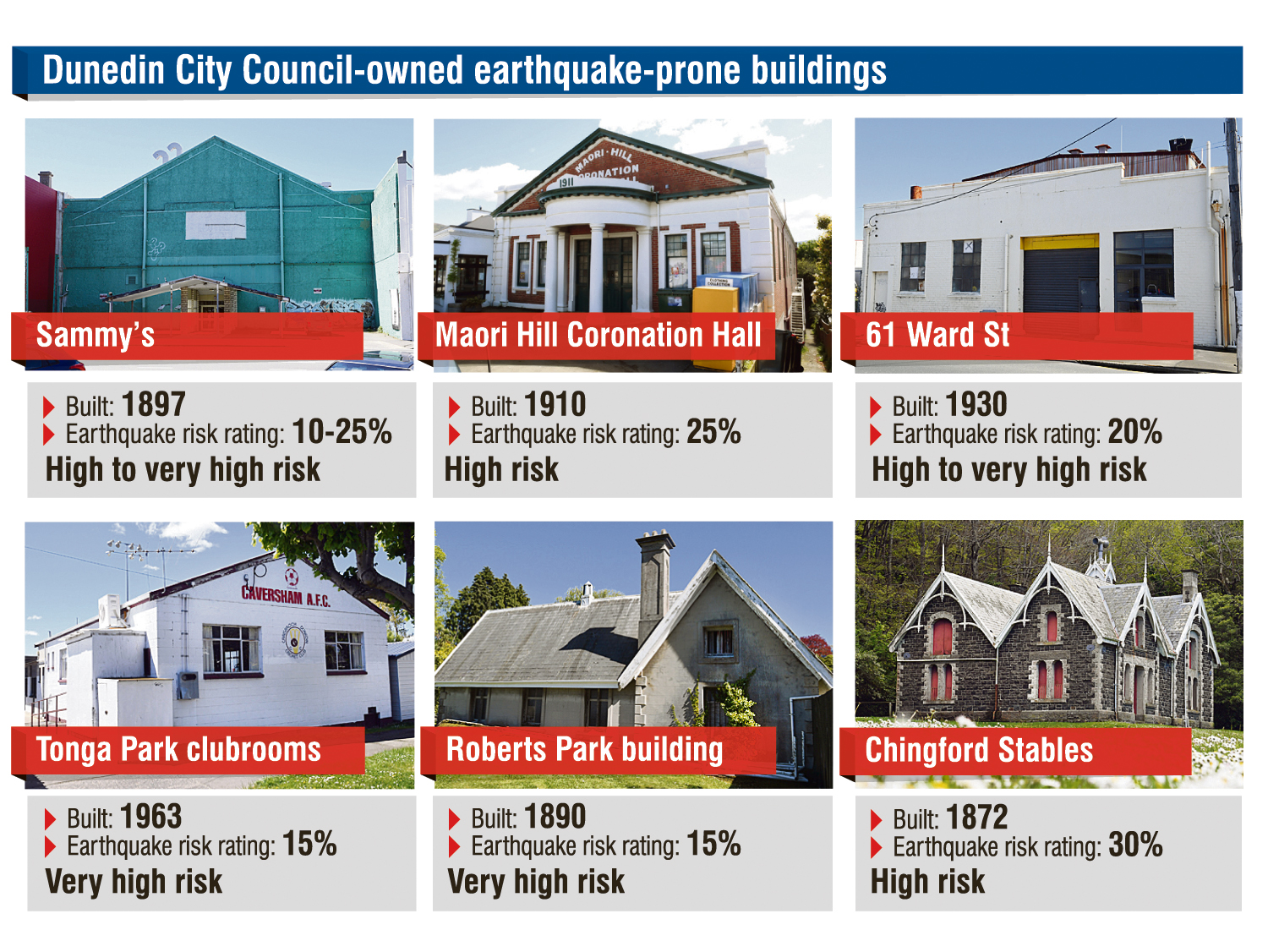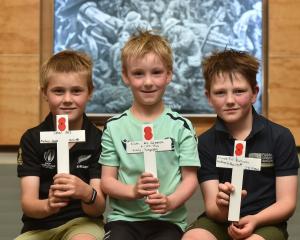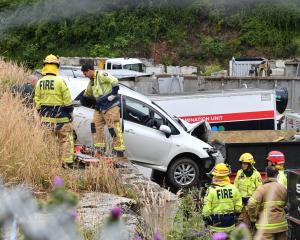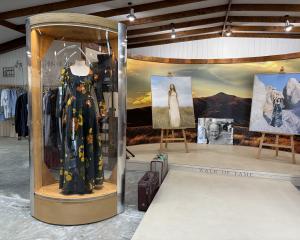
So far, 80% of the council's buildings had undergone seismic assessments, which included all of the council-owned community halls.
Six council-owned properties were found to be earthquake-prone.
The other five buildings in that category were the Maori Hill Coronation Hall, the changing rooms at Tonga Park, Chingford Stables, the Roberts Park building and 61 Ward St.
The list of the council's earthquake-prone buildings and their seismic assessments were released to the Otago Daily Times under the Local Government Official Information and Meetings Act.
An initial seismic assessment of Sammy's by engineering consultancy Beca found the 120-year-old venue had a possible seismic rating of 10%-25% of the national building standard (NBS).
A building with a rating of between 10% and 15% was considered to pose a high to very high safety risk during an earthquake.
The assessment found the building's structural continuity was poor because of the un-reinforced masonry bricks and the lack of concrete bond beams.
Liquefaction was also found to be a possible issue. However, in the event of an earthquake strong enough to cause liquefaction, it was very likely the walls would have already collapsed.
Its foundations and out-of-plane performance were also considered to be poor.
A detailed assessment would now be carried out.
In February, the council announced it had purchased the building for $128,000.
The council had already set aside $650,000 to get the building fit for public use, which included weather-proofing, electrical safety and some seismic strengthening work.
Council infrastructure and networks general manager Ruth Stokes in a written response said it was too early to estimate what it might cost to bring Sammy's up to the earthquake code.
The extent of the work required would depend on the outcome of the public consultation and what the council decided for the future use of the building, Mrs Stokes said.
Any decision to contribute to the development of Sammy's would be considered during the council's next long-term plan, she said.
Mayor Dave Cull was yesterday sticking by the decision made by council staff to buy the venue.
There was considerable demand from residents to keep Sammy's and to build it back up to a working venue, Mr Cull said.
The cost in terms of loss of heritage and streetscape value if the venue had not been purchased would have been considerable, he said.
``In a general sense we so often think only about the cost of something and not the value it brings and what would be lost.''
It was obvious from the outset the venue would need some sort of strengthening work but what happened next would depend on what came out of the public consultation process, he said.
Apart from the coronation hall, each building would be addressed on a case by case basis and it was still too early to tell if any would be demolished, Mrs Stokes said.
A detailed seismic assessment and a estimate of the cost for strengthening the coronation hall had been completed.
It was estimated strengthening work on the hall would cost between $500,000 and $700,000.
The hall is leased in part to Maori Hill School, which uses its top level for school assemblies and other large performances.
Maori Hill School principal Verity Harlick said the school continued to use the hall in a limited capacity.
The school's board of trustees had received assurances from the council regarding the ongoing use of the hall and was in regular contact with the council about the actions it was taking.
Comments
This should have been factored in to when the council purchase was made. Looks like the council didn't do its home work or thought stuff it we will buy it and cross that bridge when we get to it. its time the people of Dunedin stood up to Cull and his green councillors. Dunedin is not a rockstar economy like Cull thinks it is.
Time for heads to roll, Cull being first.












